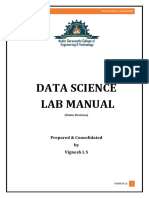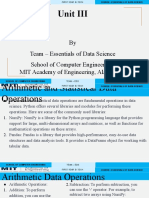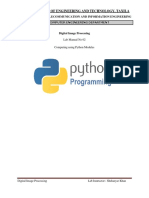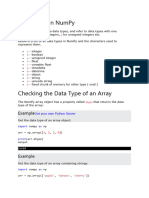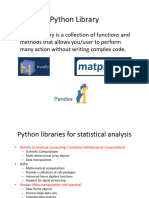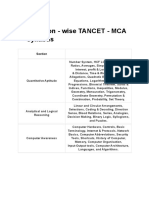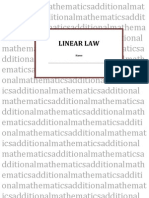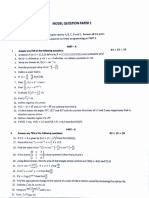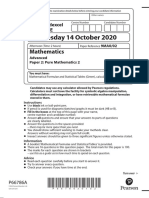Search...
Tutorials Courses Tracks Sign In
Numpy exercise pandas Matplotlib Data visulisation EDA Machine Learning Deep Learning NLP Data science ML Tutorial Computer Vision ML project
NumPy Tutorial - Python Library
Last Updated : 12 Aug, 2025
NumPy is a core Python library for numerical computing, built for handling large arrays
and matrices efficiently.
ndarray object – Stores homogeneous data in n-dimensional arrays for fast
processing.
Vectorized operations – Perform element-wise calculations without explicit loops.
Broadcasting – Apply operations across arrays of different shapes.
Linear algebra functions – Matrix multiplication, inversion, eigenvalues, etc.
Statistical tools – Mean, median, standard deviation, and more.
Fourier transforms – Fast computation for signal and image processing.
Integration with other libraries – Works seamlessly with Pandas, SciPy, and scikit-
learn.
Geeksforgeeks.org asks for your consent to use
your personal data to:
Personalised advertising and content, advertising and content
measurement, audience research and services development
Store and/or access information on a device
Learn more 2/5
Your personal data will be processed and information from your device
Important Facts(cookies,
to Know unique: identifiers, and other device data) may be stored by,
accessed by and shared with 497 TCF vendor(s) and 70 ad partner(s), or
NumPy arraysused
arespecifically by this site or meaning
homogeneous, app. all elements must be the same type,
Some vendors
allowing efficient may process your personal data on the basis of legitimate
computation.
interest, which you can object to by managing your options below. Look
Vectorized operations inbottom
for a link at the NumPy of thiscan
pagebe
or in10
theto
site100
menutimes faster
to manage or than equivalent
withdraw consent in privacy and cookie settings.
Python loops.
Manage options Consent
What is NumPy Used for?
With NumPy, you can perform a wide range of numerical operations, including:
Creating and manipulating arrays.
Performing element-wise and matrix operations.
Generating random numbers and statistical calculations.
Conducting linear algebra operations.
Working with Fourier transformations.
Handling missing values efficiently in datasets.
Why Learn NumPy?
NumPy speeds up math operations like addition and multiplication on large groups of
numbers compared to regular Python..
It’s good for handling large lists of numbers (arrays), so you don’t have to write
complicated loops.
It gives ready-to-use functions for statistics, algebra and random numbers.
Libraries like Pandas, SciPy, TensorFlow and many others are built on top of NumPy.
NumPy uses less memory and stores data more efficiently, which matters when
working with lots of data.
NumPy Basics
This section covers the fundamentals of NumPy, including installation, importing the
library and understanding its core functionalities. You will learn about the advantages of
Skip to content
NumPy over Python lists and how to set up your environment for efficient numerical
computing.
Introduction to NumPy
Installing NumPy
Understanding NumPy Arrays
NumPy Arrays
NumPy arrays (ndarrays) are the backbone of the library. This section covers how to
create and manipulate arrays effectively for data storage and processing
Creating NumPy Arrays
Numpy Array Indexing and Slicing
Reshaping and Resizing Arrays
Stacking and Splitting Arrays
Broadcasting in NumPy
Mathematical Operations in NumPy
This section covers essential mathematical functions for array computations, including
basic arithmetic, aggregation and mathematical transformations.
Basic Arithmetic Operations
Aggregation Functions (sum, mean, max, min)
Universal Functions in Numpy
Mathematical Functions in Numpy
Linear Algebra with NumPy
Geeksforgeeks.org
NumPy provides built-in asks algebra
functions for linear for youroperations
consent to use for scientific
essential
your personal data to:
computing and machine learning applications.
Personalised advertising and content, advertising and content
Matrix Multiplication measurement,
and Manipulation
audience research and services development
Matrix & vector products in Numpy
Store and/or access information on a device
Determinants and Inverse of a Matrix
Inner and Outer Functions
Dot and Vdot Functions
Your personal data will be processed and information from your device
Eigenvalues and(cookies, unique identifiers, and other device data) may be stored by,
Eigenvectors
accessed by and shared with 497 TCF vendor(s) and 70 ad partner(s), or
used specifically by this site or app.
Random Number Generation
Some vendors and
may process your Statistics
personal data on the basis of legitimate
interest, which you can object to by managing your options below. Look
NumPy’s random module
for a link atprovides a this
the bottom of listpage
of functions for generating
or in the site menu to manage or random numbers,
withdraw consent in privacy and cookie settings.
which are essential for simulations, cryptography and machine learning applications. It
supports various probability distributions, such as normal, uniform and Poisson and
enable statistical analysis.
Generating Random Numbers
Normal Distribution
Binomial Distribution
Poisson Distribution
Uniform Distribution
Exponential Distribution
Chi-square Distribution
Statistical Functions (mean, median, variance, standard deviation)
Advanced NumPy Operations
This section covers advanced NumPy techniques to enhance performance and handle
complex computations. It includes vectorized operations for speed optimization, memory
management strategies and integration with Pandas for efficient data analysis.
Vectorized Operations for Performance Optimization
Broadcasting in Numpy
Sparse Matrices in Numpy
Working with Images in Numpy
NumPy Quiz
Test your knowledge of NumPy with this quiz, covering key topics such as array
operations, mathematical functions and broadcasting.
Skip to content
NumPy Quiz
Refer to Practice Exercises, Questions and Solutions for hands-on-numpy problems.
Numpy Tutorial for Beginners | Learn Python From Scratch
Comment More info
Explore
Python Fundamentals
Geeksforgeeks.org asks for your consent to use
Python Data Structures your personal data to:
Personalised advertising and content, advertising and content
Advanced Python measurement, audience research and services development
Store and/or access information on a device
Data Science with Python
Web Development with
Your Python
personal data will be processed and information from your device
(cookies, unique identifiers, and other device data) may be stored by,
accessed by and shared with 497 TCF vendor(s) and 70 ad partner(s), or
Python Practice used specifically by this site or app.
Some vendors may process your personal data on the basis of legitimate
interest, which you can object to by managing your options below. Look
for a link at the bottom of this page or in the site menu to manage or
withdraw consent in privacy and cookie settings.
Company Explore Tutorials Courses Videos Preparation Corner
About Us POTD Programming Languages IBM Certification DSA Aptitude
Corporate & Communications Address: Legal Job-A-Thon DSA DSA and Placements Python Puzzles
A-143, 7th Floor, Sovereign Corporate Privacy Policy Community Web Technology Web Development Java GfG 160
Tower, Sector- 136, Noida, Uttar Pradesh Contact Us Blogs AI, ML & Data Science Programming Languages C++ DSA 360
(201305)
Advertise with us Nation Skill Up DevOps DevOps & Cloud Web Development System Design
Registered Address: GFG Corporate Solution CS Core Subjects GATE Data Science
K 061, Tower K, Gulshan Vivante Campus Training Interview Preparation Trending Technologies CS Subjects
Apartment, Sector 137, Noida, Gautam Program GATE
Buddh Nagar, Uttar Pradesh, 201305 Software and Tools
@GeeksforGeeks, Sanchhaya Education Private Limited, All rights reserved






